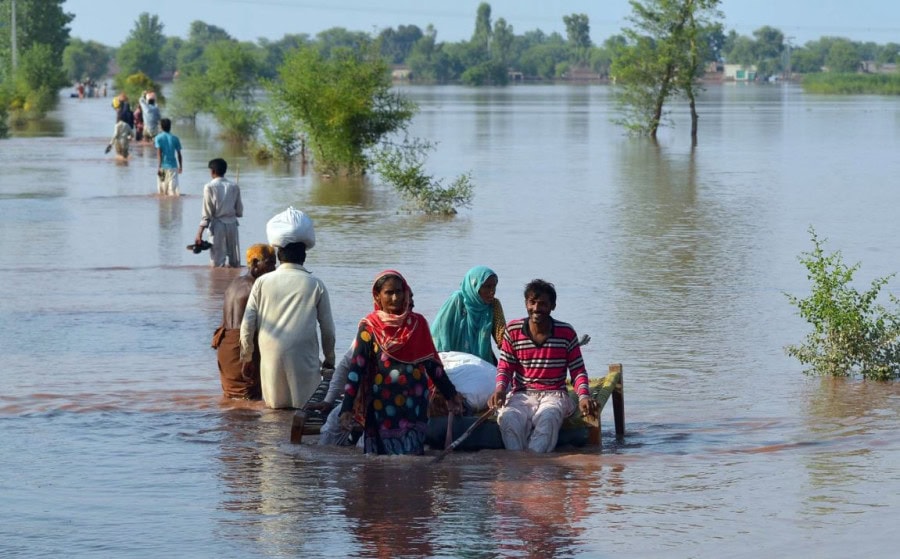Islamabad: According to United Nations Humanitarian Coordinator Julien Harneis, aid promises from UN member states for Pakistan’s flood response plan in 2022 are not materializing as swiftly as they did a few weeks ago.
The UN increased its request last week to $816 million. According to Julien Harneis, the UN’s humanitarian coordinator for Pakistan, “We need all of this money, and we need it now.”
However, Climate Home’s analysis of UN statistics reveals that wealthy nations have so far fallen short of providing even enough aid to satisfy the UN’s initial demand. The UN uses this data, which is updated daily but is not exhaustive because donor nations must report to it.
Leaders indicated key factors
Ahsan Iqbal, Pakistan’s planning minister, stated immediately following the floods that a conservative assessment of the damage done was $10 billion. It is only a first estimate and probably much higher, he added.
According to data, states have only really delivered $51 million of the more than $160 million they have pledged, a UN official told Climate Home. They have agreements in place for an additional $39m.
“We are working with the nations that are supporting Pakistan to see more financing in this crucial sector since we have not yet seen adequate investment for health, nutrition, and safe water. This is undoubtedly difficult, and there is still a sizable gap. The UN humanitarian coordinator stated that Unicef, which is heavily involved in the health and nutrition of young children, is not receiving financing at this time of crisis.
James Belgrave of the World Food Programme told Climate Home that the WFP, the government, and NGOs had measured the level of hunger throughout all of Pakistan using indicators such as the proportion of individuals who skip meals.
Prioritizing those regions with the worst hunger, he added, “depending on the amount of cash that is available, we’d be able to scale up and offer more food to more people.”
In his speech on the condition of food security and agriculture in the most severely hit areas by floods, Farrukh Toirov, Deputy Representative of the United Nations Food and Agriculture Organization (FAO), stated that the planting of wheat in those areas was currently the most pressing concern.










